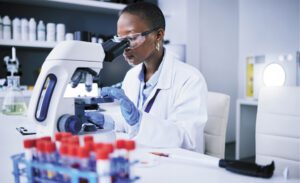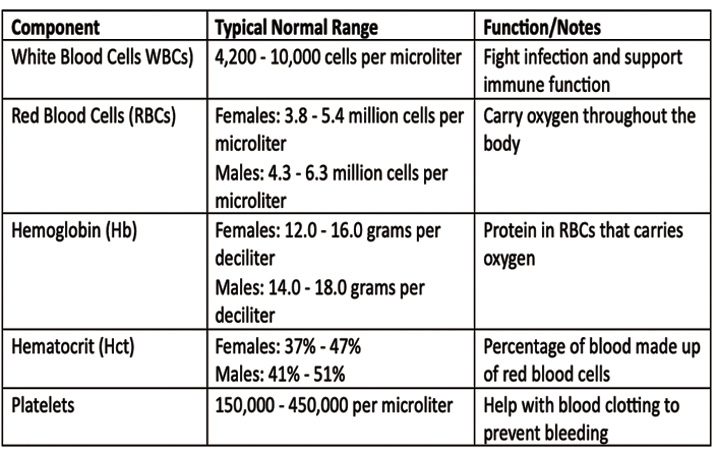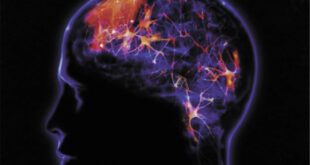 ACBC (complete blood count) is a common blood test that measures and evaluates the different types of cells in the blood. While it is often part of a routine health checkup, it is also one of the first tests commonly used to detect signs of many types of blood cancer.
ACBC (complete blood count) is a common blood test that measures and evaluates the different types of cells in the blood. While it is often part of a routine health checkup, it is also one of the first tests commonly used to detect signs of many types of blood cancer.
A CBC is usually done at a lab or hospital. You may need to follow special instructions beforehand, such as stopping certain medications that can affect results. During the test, blood is drawn from a vein in your arm using a needle. The blood is collected in a labeled tube and sent to a lab, where a technologist uses specialized equipment to examine your blood cell counts.
The ABCs of CBCs
Think of a CBC like a quick snapshot of your blood—sometimes it can feel like reading an alphabet soup of medical abbreviations. Key parts of the test include:
• White blood cells: Part of the immune system that
fights infections and other diseases
• Red blood cells (RBCs): Cells that carry oxygen throughout the body
• Hemoglobin (Hb): The specific protein in RBCs that carries oxygen
• Hematocrit (Hct): The percentage of blood made up of red blood cells
• Platelets: Fragments of cells that help with blood clotting
This “alphabet soup” gives doctors important clues about your overall blood health. A CBC can detect signs of anemia, infection, inflammation, potential bleeding problems, or certain blood disorders, and it can help track the effectiveness of treatments.
CBC Reference Chart
This reference chart shows the main components and typical normal ranges for a CBC test:

If your CBC results are outside the normal range, it doesn’t automatically mean something serious. Sometimes the cause can be simple, but it may also point to certain health conditions.
While a CBC is an important first step in detecting possible blood cancers, it is not enough by itself to confirm a diagnosis. Abnormal results typically prompt further tests — such as a peripheral blood smear, bone marrow biopsy, imaging, or genetic testing. These are necessary to confirm the presence, type, and stage of cancer and guide steps for treatment. What are blood cancers?
Every three minutes, someone in the U.S. is diagnosed with blood cancer, which is an umbrella term that covers leukemia, lymphoma, and myeloma and other cancers that affect the blood and lymphatic system.
Although the specific causes remain largely unknown, scientists have learned that blood cancers develop when the DNA in immature blood cells becomes damaged or mutated. This triggers uncontrolled cell growth that crowds out healthy cells, leaving less room for normal blood production and weakening the immune system.
• Leukemia develops when the bone marrow makes large numbers of abnormal white blood cells that don’t work properly and crowd out healthy blood cells. Unlike most
cancers, leukemia doesn’t form tumors.
• Lymphoma is a cancer of the lymphatic system, which helps remove excess fluid and produce immune cells. It begins when abnormal lymphocytes (a type of white
blood cell) grow uncontrollably and build up in lymph nodes and other tissues.
• Myeloma affects plasma cells and disrupts normal antibody production, weakening the immune system and increasing infection risk.
Many blood cancers can start with vague or nonspecific symptoms such as fatigue, fever, night sweats, weight loss, or frequent infections. Because these symptoms are common to many less serious conditions, it can be difficult to recognize blood cancers early without blood tests or medical evaluation.
WORLD-CLASS CANCER TREATMENT, CLOSE TO HOME
About Florida Cancer Specialists & Research Institute, LLC (FLCancer.com)
For more than 40 years, FCS has built a national reputation for excellence that is reflected in exceptional and compassionate patient care, driven by innovative clinical research, cutting-edge technologies and advanced treatments, including targeted therapies genomic-based treatment and immunotherapy. Our highest values are embodied by our outstanding team of highly trained and dedicated physicians, clinicians and staff.
In Marion County, board-certified
physicians specializing in hematology, medical oncology, gynecologic oncology and radiation oncology provide personalized care for all forms of cancers and blood disorders. With extraordinary skill and experience, they deliver treatments with maximum effectiveness and safety, combined with compassion and concern for patients and their families. From genetic screening to immunotherapies and access to the latest clinical trials, our top-ranked cancer experts provide the newest and most advanced treatments available – increasing cure rates and extending lives.
Florida Cancer Specialists & Research Institute
1630 SE 18th St, Ste 602
Ocala, FL 34471-5472
4945 SW 49th Pl
Ocala, FL 34474-9673
For more information, visit FLCancer.com
 Central Florida Health and Wellness Magazine Health and Wellness Articles of the Villages
Central Florida Health and Wellness Magazine Health and Wellness Articles of the Villages



